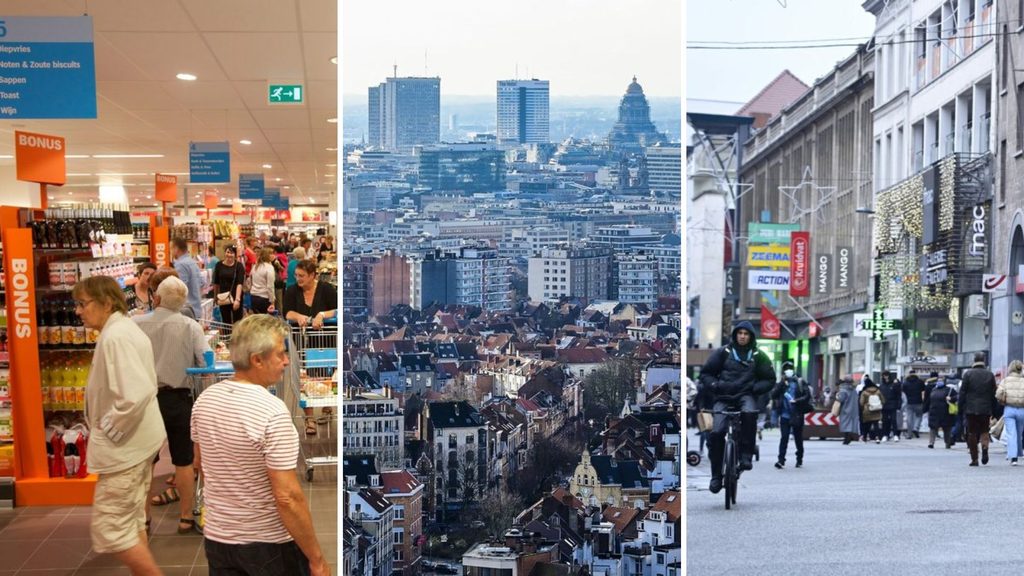When things hit the fan, humans are drawn instinctively to the blame game: whodunnit and why are key questions in getting to the root of the problem and, inshallah, fixing it.
As children this urge to riddle out the solution is encouraged by everything from algebra equations to murder mysteries, which portray human misdemeanour as an enthralling matrix of blunders and indiscretion – as if the world were governed by codes as certain as the mechanism of a finely-tuned machine. When things go wrong, a systematic analysis will reveal the flaw.
The difficulty and disappointment for our juvenile search for justice is that the same methods provide far less satisfactory results when applied on a grander scale. When faced with society's gravest ailments and impediments to progress, identifying the cause of our malaise is infinitely more complicated.
All of which might serve as a prelude to the OECD's recent supposition that Belgium's economy is undermined by the country's almost unique system of automatic wage indexations, by which the purchasing power of employees is protected from the scourge of inflation by incremental salary bumps. The idea is to minimise the real-term pay cuts that come with wages stagnating whilst inflation goes on unabated.
In an assessment of Belgium's economic prospects, the major international development organisation made gloomy predictions about unprosperous times to come and posited that the wage indexations that exist to assist a swathe of the country's working population in fact do more harm than good.
Certainly, it's a charge that has been repeated time and again by business leaders who bemoan Belgium's diminished competitiveness as a result of higher labour costs. But then they would say that wouldn't they? As employees will point out, the cost of living has undeniably gone through the roof and a little help to bear the excessive burden is hugely appreciated.
To bring detail to the otherwise basic conflict that pits business against labour, it is worth noting firstly that the spiral of indexation-driven inflation that is the scare story of opponents to Belgium's wage protections has yet to transpire; in fact, the news that the next indexation has been pushed back a month might be taken instead as a sign that things are stabilising than ramping up uncontrollably.
More glaring however, are the record profits that many sectors have raked in when consumers are most feeling the pinch. In supermarkets, food inflation remains at a peak whilst the undisputed bad guys that are fossil fuel merchants have basically given up trying to resuscitate their public image – why bother when you can weaponise a crisis to reap eyewatering rewards?
Some analysts are now putting forward a strong case that more than anything else, these egregious acts of opportunism are responsible for our inflationary headache. And though as mentioned, pointing the finger is never as easy as we wish it was, might greed not be the bigger threat to our national good than the indexations?
Let @Orlando_tbt know.
Belgium in Brief is a free daily roundup of the top stories to get you through your coffee break conversations. To receive it straight to your inbox every day, sign up below:
1. Automatic wage indexations 'main risk' to Belgium's economy, OECD claims
The Organisation for Economic Co-operation and Development (OECD) – a group of mostly rich countries – has condemned Belgium's system of government-mandated wage indexations, claiming that it poses one of the "main risks" to the country's economic outlook by potentially inducing "more persistent inflation". Read more.
2. A summer guide to Belgium's best festivals in 2023
From the end of May until mid-September, Belgium becomes music festival central. During these months, not a weekend goes by without a large-scale multi-day festival or intimate, unique music celebration taking place. Read more.
3. Belgian citizens asked to register before going on holiday
On the eve of the summer holidays, Belgium's Ministry of Foreign Affairs is encouraging citizens to better prepare for their trips and to register their time abroad. Read more.
4. Runners and walkers rejoice! Brussels to optimise pedestrian routes
With ever more people enjoying the ease of getting around Brussels on foot, running has become increasingly popular. To accommodate this growing trend the region is now looking to improve routes in the aim of removing any barrier to strolling or running in the city. Read more.
5. Federal Government proposes one-off €22,650 pension payment for three years' extra work
Belgium's Pensions Minister Karine Lalieux (PS) has proposed that people who continue to work beyond the age of early retirement should be awarded a one-off pension payment of up to €22,650. Read more.
6. Belfius first major bank to raise interest rates
Following weeks of reluctance, Belfius has become the first major bank in Belgium to raise the interest on its savings accounts: from 1 July, the interest on the regular savings account will increase from 0.50% to 0.90%. Read more.
7. Bouncers told not to let 'black and North African people' into Brussels nightclub
Recent testimonies given by a municipal councillor and a bouncer have shed light on the ongoing discrimination people of colour face in Belgian nightclubs, RTBF reports. Read more.


